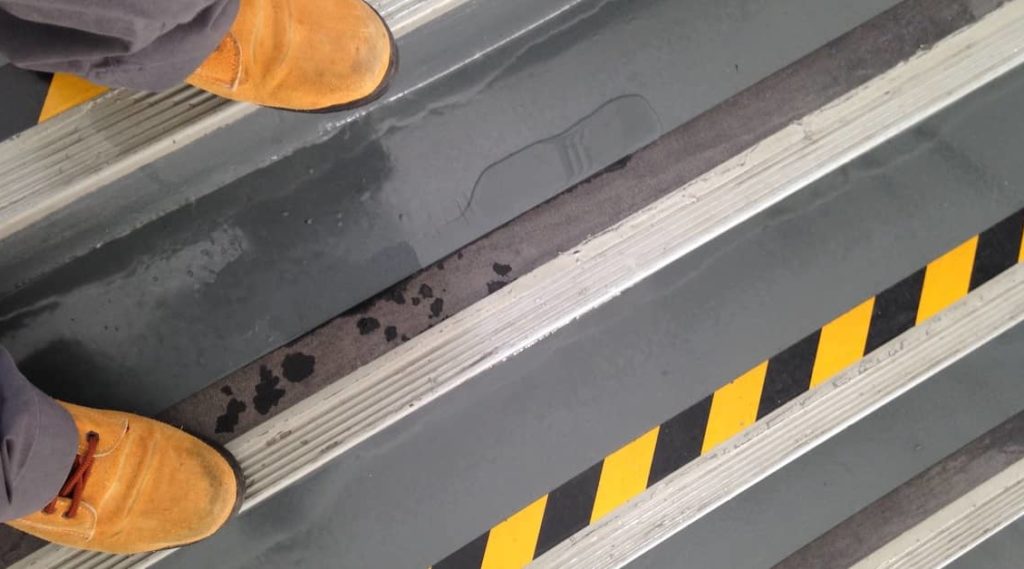
Following an injury in a slip, trip, fall or other accident on someone else’s property, you may have questions about your legal rights. In California, your legal rights after a property-related accident are governed by the law of premises liability.
If you were hurt on someone’s dangerous property, the Bakersfield premises liability attorneys at the Law Offices of Mickey Fine want to hear your story. Property owners have a duty to keep their premises safe for visitors. If they failed in this duty we may be able to help you seek compensation for your physical, emotional, and financial losses that occurred as a result of their negligence.
California’s Premises Liability Law: An Overview
Premises liability is the law that governs personal injury claims against property owners and tenants. Section 1714(a) of the California Civil Code states: “Everyone is responsible, not only for the result of his or her willful acts, but also for an injury occasioned to another by his or her want of ordinary care or skill in the management of his or her property . . . .”
If you find this confusing, you are not alone. The law was originally enacted in 1872; and, while there have been some updates since, this provision remains largely intact as it was 150 years ago.
The key language in Section 1714(a) is, “want of ordinary care.” The California courts have consistently interpreted this as applying a negligence standard to property owners’ and tenants’ maintenance obligations. If a property owner or tenant fails to exercise ordinary care—and if this failure leads to an accident—then the property owner or tenant can be held liable under California law.
The California Civil Jury Instructions (CACI) provide some additional clarity. CACI 1000 states that to establish a claim for premises liability, a plaintiff must prove the following:
- That the defendant owned, leased, occupied, or controlled the property;
- That the defendant was negligent in the “use or maintenance of the property;
- That the plaintiff was harmed; and
- That the defendant’s negligence was a “substantial factor” in causing the plaintiff’s harm.
If an accident victim can establish all four of these “elements,” then the accident victim has a premises liability claim under California law, and the property owner or tenant is liable for the victim’s accident-related losses. This includes financial losses such as medical bills and lost wages, as well as non-financial losses such as emotional distress, pain and suffering, and loss of enjoyment of life.
What Constitutes Negligent Use or Maintenance of Property?
In most instances, the defendant’s ownership or right to possess the property won’t be in question, nor will the fact that the plaintiff was harmed in a property-related accident (although property owners and tenants will dispute this in some cases). As a result, most cases hinge on two key factors: (i) was the defendant negligent in its “use or maintenance of the property;” and, (ii) was the defendant’s negligence a “substantial factor” in causing the plaintiff’s harm.
When it comes to the use or maintenance of property, negligence can take many different forms. For example, common grounds for pursuing premises liability claims in California include:
- Failure to clean up spills or address other safety hazards
- Failure to repair damaged parking lots and sidewalks
- Failure to replace worn flooring materials
- Failure to provide adequate security or supervision
- Failure to install or maintain adequate lighting
- Failure to repair or replace dangerous handrails, playground equipment, and other items
- Failure to repair or prevent access to malfunctioning elevators and escalators
Again, these are just examples. If you have been injured on private or public property under any circumstances in which you believe the owner or tenant may be at fault, you should speak with a Bakersfield premises liability lawyer about your legal rights.
When is a Property Owner’s or Tenant’s Negligence a “Substantial Factor”?
What about proving that the property owner’s or tenant’s negligence was a “substantial factor” in causing your injury? There are a variety of ways to prove this as well. Eye witness testimony, surveillance footage, and your medical records are just a few examples of evidence your lawyer may be able to use to prove your premises liability claim.
One issue that frequently comes up in premises liability cases is the issue of comparative fault. Under California law, if you are partially at fault in an accident (i.e., if you are partially to blame for your own slip and fall), this reduces the amount you are entitled to recover. Property owners’ and tenants’ insurance companies will often claim comparative fault in an effort to reduce their liability—and overcoming these accusations requires clear proof of how and why you got injured.
Discuss Your Legal Rights with a Bakersfield Premises Liability Lawyer for Free
With all of this in mind, if you think you may have a premises liability claim, it is important that you speak with a lawyer as soon as possible. For a free, no-obligation consultation at The Law Offices of Mickey Fine, please call (661) 333-3333 or tell us how we can reach you online today.
